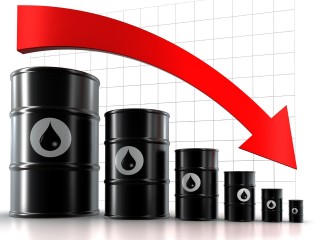The International Energy Agency (IEA), in its latest report, revealed that the global prices of oil are unlikely to increase this year after slumping below $30 per barrel in late January.
Having peaked, at a five-year high of 1.6 million barrels per day in 2015, global oil demand growth is forecast to ease back considerably in 2016, to 1.2 million barrels per day as a result of slow economic growth most notably in Europe, China and the United States. With the market already awash in oil, it is rather difficult to see how oil prices can rise significantly in the short term, the IEA Oil Market Report (OMR) revealed.
Here is why the global prices of oil will not increase this year:
- Oversupply by OPEC Members
According to the IEA’s monthly report, OPEC’s current production rose by 280,000 barrels a day in January to 32.63 million barrels a day. Iran, following the removal of her oil sanctions, increased output by 80,000 barrels a day to 2.99 million barrels per day in January and could raise that further, according to the IEA. Saudi Arabia, OPEC’s biggest member and de facto leader, boosted production by 70,000 barrels a day to 10.21 million while Iraq set a new output record of 4.35 million barrels a day thanks to an increased production of 50,000 barrels a day.
- Decreased global demand for oil
Global oil production by OPEC countries increased by 280,000 barrels a day, last month, to 32.63 million, the IEA said. The increase in daily production amounts to about 900,000 a day, more than the average required from the OPEC this year.
In December 2015, oil inventories in developed nations increased, leaving stockpiles of about 350 million barrels above average, according to the report. The implication of the stockpile essentially means supply outweighs demand hence, a drop in price of oil.
3. No agreement to restrain supply
No agreement to restrain supply has been made despite Venezuelan Oil Minister, Eulogio Del Pino, touring oil capitals from Moscow to Riyadh last week and Nigeria Petroleum Minister, Emmanuel Kachikwu’s call for an emergency meeting last month to cut the over supply. In essence, the persistent fall in oil price is inevitable.
While countries like Saudi Arabia, Iraq and Iran can cope with global price of oil around $30-$50 per barrel, the same cannot be said for countries whose economies largely depend on oil. The recent IEA reports present a new dilemma to oil dependent countries since the price of oil is unlikely to go up this year.








